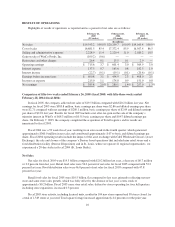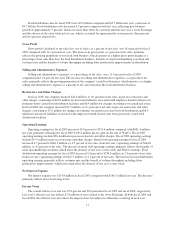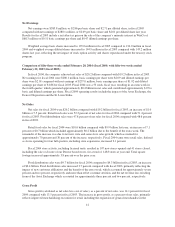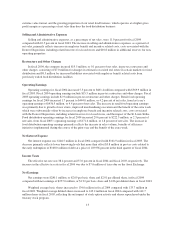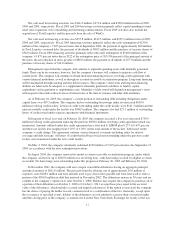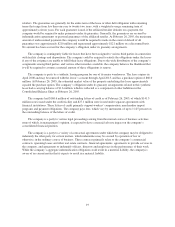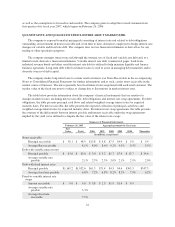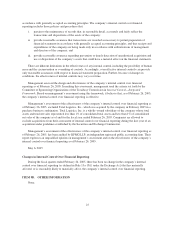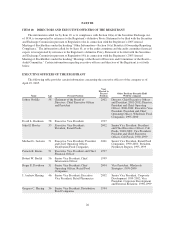Albertsons 2005 Annual Report Download - page 25
Download and view the complete annual report
Please find page 25 of the 2005 Albertsons annual report below. You can navigate through the pages in the report by either clicking on the pages listed below, or by using the keyword search tool below to find specific information within the annual report.retailers. The guarantees are generally for the entire term of the lease or other debt obligation with remaining
terms that range from less than one year to twenty-two years, with a weighted average remaining term of
approximately eleven years. For each guarantee issued, if the affiliated retailer defaults on a payment, the
company would be required to make payments under its guarantee. Generally, the guarantees are secured by
indemnification agreements or personal guarantees of the affiliated retailer. At February 26, 2005, the maximum
amount of undiscounted payments the company would be required to make in the event of default of all
guarantees was approximately $210 million and represented approximately $121 million on a discounted basis.
No amount has been accrued for the company’s obligation under its guaranty arrangements.
The company is contingently liable for leases that have been assigned to various third parties in connection
with facility closings and dispositions. The company could be required to satisfy the obligations under the leases
if any of the assignees are unable to fulfill their lease obligations. Due to the wide distribution of the company’s
assignments among third parties, and various other remedies available, the company believes the likelihood that
it will be required to assume a material amount of these obligations is remote.
The company is party to a synthetic leasing program for one of its major warehouses. The lease expires in
April 2008 and may be renewed with the lessor’s consent through April 2013, and has a purchase option of $60.0
million. At February 26, 2005, the estimated market value of the property underlying this lease approximately
equaled the purchase option. The company’s obligation under its guaranty arrangements related to this synthetic
lease had a carrying balance of $1.6 million, which is reflected as a component of other liabilities in the
Consolidated Balance Sheet at February 26, 2005.
The company had $168.6 million of outstanding letters of credit as of February 26, 2005, of which $141.5
million were issued under the credit facility and $27.1 million were issued under separate agreements with
financial institutions. These letters of credit primarily support workers’ compensation, merchandise import
programs and payment obligations. The company pays fees, which vary by instrument, of up to 1.125 percent on
the outstanding balance of the letters of credit.
The company is a party to various legal proceedings arising from the normal course of business activities,
none of which, in management’s opinion, is expected to have a material adverse impact on the company’s
consolidated financial position.
The company is a party to a variety of contractual agreements under which the company may be obligated to
indemnify the other party for certain matters, which indemnities may be secured by operation of law or
otherwise, in the ordinary course of business. These contracts primarily relate to the company’s commercial
contracts, operating leases and other real estate contracts, financial agreements, agreements to provide services to
the company, and agreements to indemnify officers, directors and employees in the performance of their work.
While the company’s aggregate indemnification obligation could result in a material liability, the company is
aware of no current matter that it expects to result in a material liability.
19



